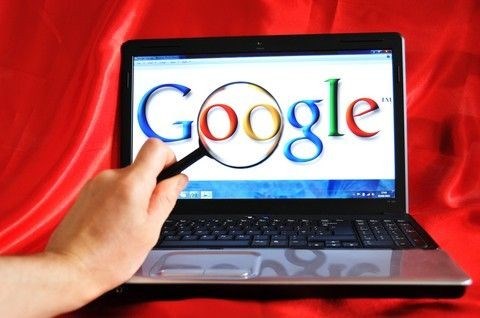I really like Google products and have, despite all the ongoing concerns about privacy, allowed myself to be wedded to them. I use Gmail, Google Calendar, Google+, Google Maps, the Chrome Web browser and Google Earth. I have a Google Nexus 7, two Google Chromebooks, and have recently defected from an iPhone, to a Samsung Galaxy Note 3, running Google’s Android Operating System. I might even buy a pair of Google Glasses, if they add prescription capability.
I like Google products and use them more and more despite the facts that Google didn’t tell me that the National Security Agency (NSA) had access to my mail, browser usage and other activities; that it knows who writes to me and does keyword searches on my incoming mail to decide what ads to put up on my mail page; that it knows where I am from the location features in its Maps software and various hardware products; that it tailors my search responses to what it thinks is important to me. I like them even though Google set up a separate search engine for China to allow the whitewashing of stories the communist country found "disruptive" to its society. In other words, I know many of the complaints about Google and feel that the benefits of its products outweigh the possible liabilities.
This view, however, may be shortsighted. After all, it focuses only on today’s merits and demerits and not on the path Google may (or may not) be taking us. A possible (and very scary) path is laid out in Dave Eggers’ riveting novel, "The Circle." The heroine in the story, Mae Holland, obtains a position at The Circle, the "best company to work for in the country" (as Google has been called). As all employees do, she buys into the corporate culture, leading her to slowly accept and then champion a path to "total transparency."
First, she finds that participation in social media is mandatory rather than voluntary, as is participation in company after-work activities. As she gets deeper into the culture, she agrees to be the first in the company to "go transparent" and let the public watch – and comment on – her every move. Her total acceptance of the culture (which is slowly moving the public toward semi-mandatory total transparency as well) estranges her from her family and ex-lover. The quest for total transparency goes so far as to foster new slogans – "Privacy is theft" and "Secrets are lies."
The progression of the Circle’s quest for complete transparency goes on:
- Mapping and GPS software allows citizens to identify not only the pedophiles in a neighborhood but anyone ever convicted of any crime
- The same software allows those driving down a street to identify those on the street with criminal records
- The same software in conjunction with profiling software could alert people in an apartment house or complex about the arrival of a non-resident so the "visitor" could be checked out
It goes and on. Some of the technology that adds to the total transparency includes headset cameras and monitors, and driverless cars. (Read more in 1984 in 2013: Privacy and the Internet.)
The fact that "The Circle" is based on Google is obvious. A New York Times story on the book even includes a picture of part of Google’s corporate campus over the story. What is not so obvious is whether Google is attempting to lead us down the same path as the company portrayed in this fictional novel. The fictional Circle’s top management was composed of one transparency true believer, one reclusive visionary, and one hard-headed businessman who saw the move to total transparency only as a move to increase The Circle’s power and profitability. The public, enthralled by the elegance of the technology, and caught up in the apparent improved security of the total transparency movement, were the enablers of this massive social change (and corporate power grab).
Would we be as compliant? I don’t know. I have a close friend who won’t use most Google products because he thinks that Google requires too much personal information and then "knows too much about him." I disagree, telling him that there really is no privacy these days. After all, your credit card purchases are captured and let people know what you buy and how you shop; your use of "location services" on your smartphone and in your car, as well as your EZPass records tell people where you are. Oh, and the National Security Agency (NSA), FBI, and U.S. Postal Service carries out surveillance activities that form a very complete profile on you. I figure, who cares if Google does a little more digging? (Read more in Is the NSA Spying on Me?)
Well, "The Circle" makes the point that each "little more" can be a step into a "Brave New World," a "1984," or a "Matrix". Fiction or not, the book is a cautionary tale that should cause reflection on the path that we personally and our society in general are on. Elegant software and hardware products should be tools to enhance our lives, not devices of entrapment.






